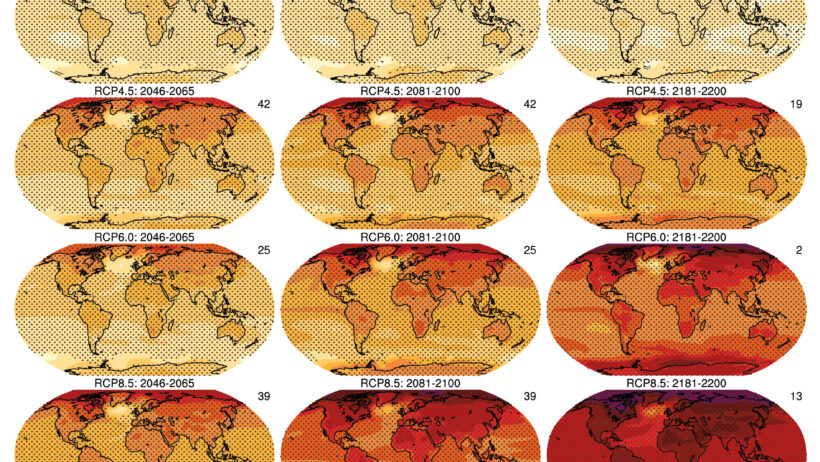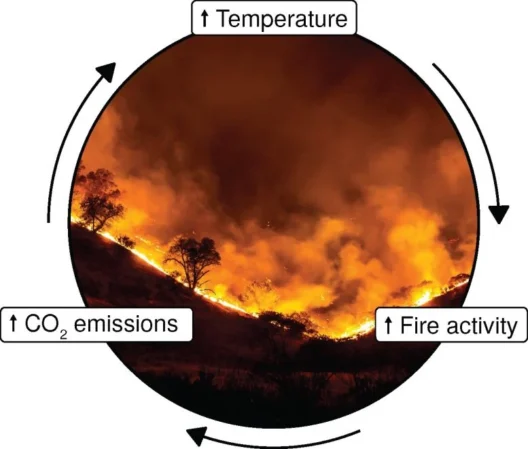As we look towards the year 2050, one cannot help but ponder the profound implications of climate change. The popular discourse often hinges on the ramifications of global warming, yet beneath this surface level discussion lies a tapestry of intricate factors driving our current trajectory. Will climate change be a calamitous event that devastates ecosystems and human livelihood, or will it serve as a catalyst for global awakening and transformative actions? This article delves into the unsettling visions of our potential future, while also exploring the nuances that lie beneath the overarching narrative.
To comprehend how dire climate change will be in 2050, one must first consider the scientific consensus around temperature increases. The Intergovernmental Panel on Climate Change (IPCC) has made it eminently clear: if current emissions trajectories persist, we could expect global temperatures to rise by approximately 1.5°C above pre-industrial levels by as early as 2030, leading to even more severe rises thereafter. This seemingly moderate increase indeed signals a multitude of changes in our planet’s climate systems.
The frequency and intensity of extreme weather events will likely escalate, becoming a common reality for communities worldwide. From ferocious hurricanes to debilitating droughts, the climate’s volatility will present challenges to societies that are unprepared. One cannot ignore the multifaceted consequences of such events, which may include catastrophic property damage, loss of life, and mass displacements of people—an emerging phenomenon colloquially referred to as “climate refugees.” This plight could exacerbate tensions in regions already beset by socio-political issues, leading to heightened instability.
In terms of ecological impacts, the projections for 2050 are equally sobering. Biodiversity is under siege; species extinction rates are accelerating at an unprecedented pace. The report elucidates how ecosystems that have taken millennia to evolve are being irrevocably altered. Coral reefs, for example, face annihilation through ocean acidification and temperature increases. Such ecosystems are not only vital as biodiversity reservoirs, but they also support millions of livelihoods through fisheries and tourism.
Moreover, the implications of climate change will extend into the agricultural domain, where modifications in climate patterns may precipitate declines in food security. Changes in precipitation and temperature can severely affect crop yields, making staple foods less accessible in certain regions. Food production systems may falter, pushing vulnerable populations into deeper poverty and increasing global hunger rates. As desolate land replaces fertile soil, conflicts over resources could escalate, manifesting a dystopian future where scarcity dominates human interactions.
Water scarcity, too, will undoubtedly be exacerbated by climate change. The melting of glaciers, altered precipitation patterns, and increased evaporation rates will conspire to threaten the availability of freshwater resources. In regions reliant on glacial meltwater, the rush of water may initially increase, only to dwindle dramatically as glaciers recede. Such extremes could spell disaster for agriculture and drinking water supplies, igniting conflicts over water rights and access.
Conversely, amid the gloom, it is vital to acknowledge the potential for climate change to motivate a global awakening. As society grapples with the multifarious repercussions of a warming planet, we may witness an unprecedented amplification of environmental consciousness. The active participation of citizens, businesses, and policymakers could forge a collective resolve to mitigate impacts and adapt to emerging challenges.
Technological advancements will also play a crucial role in shaping our approach to climate issues. Investments in renewable energy sources—such as solar, wind, and biomass—hold the promise of rendering fossil fuel dependence obsolete. The rise in electric vehicles and carbon capture technologies may further alleviate the burden on our atmosphere. It is within the realm of possibility that a concerted shift towards a circular economy, emphasizing sustainability and resource optimization, could emerge as a pivotal response against negligence and inertia.
International cooperation will prove paramount in this wake-up call. The Paris Agreement, though fraught with challenges, epitomizes the potential for unity on a global scale. Countries across the spectrum must collaborate to establish binding commitments to reduce greenhouse gas emissions. Enhanced financial aid for developing nations, as they confront the perils of climate change, will be vital to achieving a just transition. This collaborative spirit will enable not merely survival, but the thriving of societies in the face of adversity.
Additionally, education and advocacy must take center stage in combating complacency toward climate change. Awareness campaigns aimed at empowering individuals to enact sustainable practices can catalyze substantial change at the grassroots level. Young people, in particular, embody the urgency of this movement and are increasingly becoming the vanguards of environmental activism, demanding accountability from those in power.
In sum, as we contemplate the implications of climate change in 2050, we oscillate between visions of despair and opportunities for renewal. It is quite evident that the specter of climate change looms ominously, threatening ecosystems, economies, and communities. However, amidst this turmoil lies the potential for a global awakening and the ability to collectively embrace change. The coming decades will serve as a crucible in which humanity’s response to this existential challenge will be tested. Therefore, the question remains: will we succumb to inertia, or will we rise to meet this clarion call for action? The stakes are undeniably high, and the future hangs in the balance.




